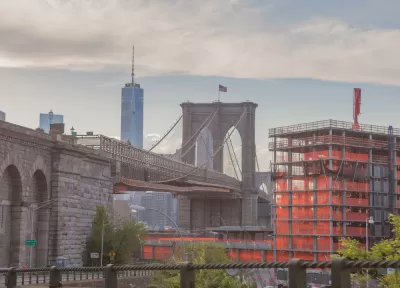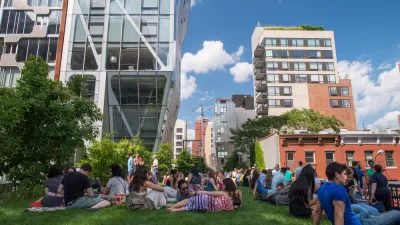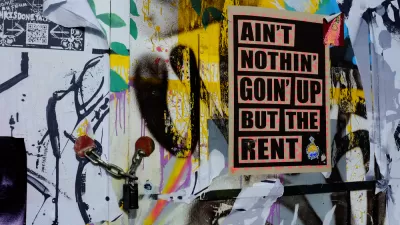One of the most enthusiastic advocates for the urban resurgence, Richard Florida turns his attention to the segregation, inequality, and housing shortages that threaten to tear cities apart in The New Urban Crisis.

Richard Florida's latest book, The New Urban Crisis, comes out in April. Josh Stephens reviewed it for the California Planning & Development Report.
"The last great urban crisis – back in the 1960s and 1970s -- took place in plain sight. The Cuyahoga River caught fire. So did the Bronx. Downtown neighborhoods emptied out and then got torn down. What Florida realized is that the current crisis, while not nearly as grave as the last one, is profound in its own way. But it’s relatively invisible, hidden behind, and not nearly as exciting as, the prosperity of the past decade. He realized that 'the very same clustering force that drives economic and social progress also…. generates a lopsided, extremely unequal kind of urbanism. A relative handful of superstar cities…benefit while many other places stagnate.'"
"Florida fuses this data into what he calls the 'New Urban Crisis Index,' consisting of 'economic segregation, wage inequality, income inequality, and housing unaffordability.' The big winners/losers, are, in order: Los Angeles, New York City, San Francisco, San Diego, and Chicago."
"The New Urban Crisis lacks much of the dazzle that characterizes Florida’s earlier work — he’s like a Taylor Swift fan who just discovered Morrissey. Previously, Florida presaged, and encouraged, ebullient trends that hadn’t happened yet. This time, he’s describing depressing things of which many urbanites are all too aware. Whether Florida should have been aware of them — ahead of time — is the question that hangs over the book."
"If anything, the biggest mistake of Florida and other city boosters was to sell cities to creatives (and vice-versa) without fully impressing on creatives their obligation to be citizens."
FULL STORY: Richard Florida's Reckoning: Review of The New Urban Crisis

Planetizen Federal Action Tracker
A weekly monitor of how Trump’s orders and actions are impacting planners and planning in America.

Map: Where Senate Republicans Want to Sell Your Public Lands
For public land advocates, the Senate Republicans’ proposal to sell millions of acres of public land in the West is “the biggest fight of their careers.”

Restaurant Patios Were a Pandemic Win — Why Were They so Hard to Keep?
Social distancing requirements and changes in travel patterns prompted cities to pilot new uses for street and sidewalk space. Then it got complicated.

California Homeless Arrests, Citations Spike After Ruling
An investigation reveals that anti-homeless actions increased up to 500% after Grants Pass v. Johnson — even in cities claiming no policy change.

Albuquerque Route 66 Motels Become Affordable Housing
A $4 million city fund is incentivizing developers to breathe new life into derelict midcentury motels.

DC Area County Eliminates Bus Fares
Montgomery County joins a growing trend of making transit free.
Urban Design for Planners 1: Software Tools
This six-course series explores essential urban design concepts using open source software and equips planners with the tools they need to participate fully in the urban design process.
Planning for Universal Design
Learn the tools for implementing Universal Design in planning regulations.
Heyer Gruel & Associates PA
JM Goldson LLC
Custer County Colorado
City of Camden Redevelopment Agency
City of Astoria
Transportation Research & Education Center (TREC) at Portland State University
Camden Redevelopment Agency
City of Claremont
Municipality of Princeton (NJ)




























